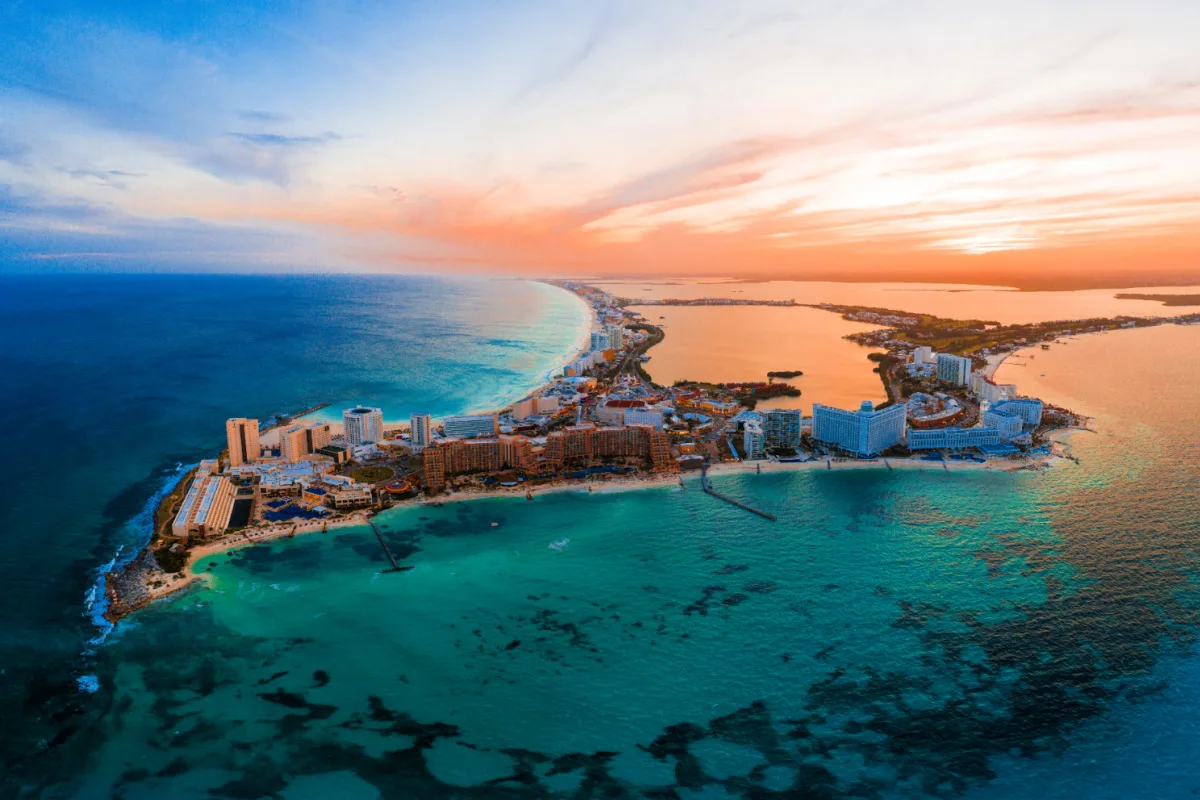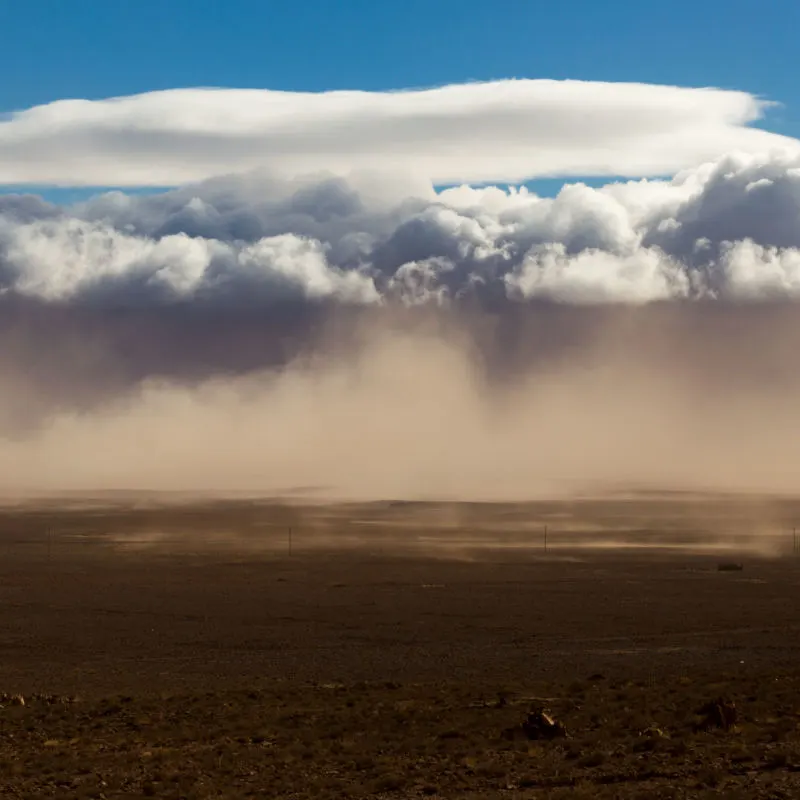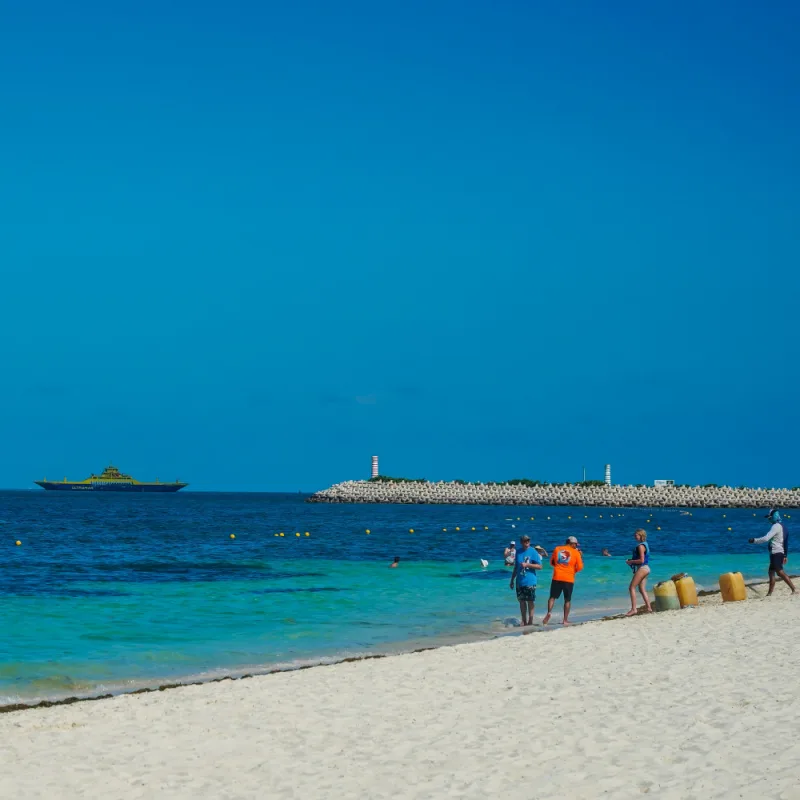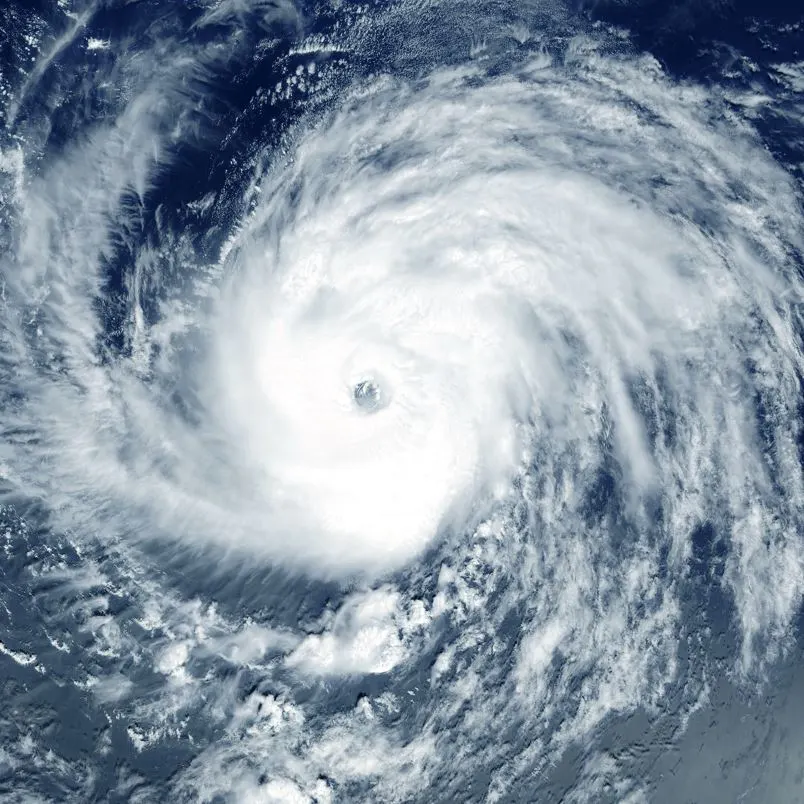Each year, around late May to early June, large dust clouds originating from the Sahara desert paint Cancun’s skies in a deep orange hue.
Although visually stunning, the phenomenon can cause respiratory symptoms such as cough and sore throat, leading officials to warn residents & travelers over the looming dust cloud.

According to the latest forecast, Cancun could see Sahara dust as soon as this week, with small sand particles expected to be visible in the city throughout the summer.
With that in mind, here’s a look at how this unique weather phenomenon might impact your next Cancun getaway.

Travelers Urged To Be Cautious In Cancun As Dust Particles Affect City
Cancun is no stranger to mystical and sometimes powerful weather phenomena. From hurricanes and tropical storms to extreme heat, the Mexican Caribbean hotspot is exposed to a number of meteorological conditions throughout the year.
This week, the city began preparing for the effects of one of the most unusual weather-related dynamics as officials warned residents about the incoming Sahara dust clouds.

The dust emanates from the vast Sahara desert in Africa – a continent largely characterized by huge areas of dry weather – from where it is carried by wind across the Atlantic Ocean.
Tiny particles of sand and dust travel thousands of miles in huge amounts, eventually reaching the Caribbean, and affecting places like Cancun and other regions close by.

According to meteorological experts, Cancun and the Mexican Caribbean will begin seeing more dust particles in the atmosphere as early as this Friday. As a result, air quality will drop, occasionally being classified as moderate or even severe.
It’s nearly impossible to predict how long the phenomenon will last, although dust levels remain above average throughout the summer, peaking sometime in July to August.
Cancun’s civil protection agency has warned residents about the dust, urging them to avoid strenuous physical activity outdoors when air quality is low. Likewise, residents are urged to use sunglasses to protect their eyes from the effects of the sand.

Fortunately, most travelers will still be able to enjoy Cancun’s varied outdoor attractions without suffering from respiratory symptoms.
However, older travelers, as well as those suffering from asthma, are advised to carry masks or to limit outdoor activities when air quality drops.
However, travelers can also look forward to several positive effects caused by Saharan dust.
Intense and colorful crimson sunsets typically occur when large quantities of sand particles are suspended in the air, creating many wonderful opportunities for picture-taking.

Higher sand concentrations in the atmosphere are also linked to sunnier, drier weather, creating the perfect conditions for a lovely beach trip.
Cancun Bracing For Intense Summer Heat
Saharan sand isn’t the only weather phenomenon that will affect Cancun this summer.
The coastal hotspot is currently gearing up for what could be the hottest summer in decades.
With temperatures expected to reach up to 113 degrees Fahrenheit this summer, experts are warning travelers to take the extreme heat into consideration when planning their Cancun vacation.

From heat stroke to sunburns, high temperatures can cause numerous unpleasant effects, especially when exposed to direct sunlight for long periods.
As a result, visitors should regularly apply sunscreen and drink plenty of fluids to mitigate Cancun’s heatwaves.
The hurricane season – which begins in June – is also expected to be unusually strong this year, with over 20 tropical storms forecast to affect Cancun this summer.
Plan Your Next Cancun Vacation:
Traveler Alert: Don’t Forget Travel Insurance For Your Next Trip!
Choose From Thousands of Cancun and Riviera Maya Hotels, Resorts and Hostels with Free Cancellation On Most Properties
↓ Join the community ↓
The Cancun Sun Community FB group has all the latest travel news, conversations and tourism Q&A’s for the Mexican Caribbean

Subscribe to our Latest Posts
Enter your email address to subscribe to The Cancun Sun’s latest breaking news affecting travelers, straight to your inbox.
